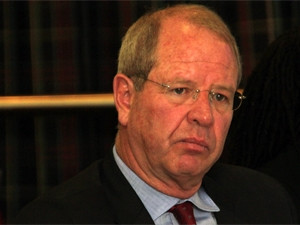
Internet Solutions (IS) says Vodacom's bid to buy Neotel for R7 billion will adversely impact the competitive landscape; leading to higher prices, lower network quality and increased risk of collusion in the telecoms sector.
Speaking this morning during the Independent Communications Authority of SA's (ICASA's) second day of hearings into whether the deal should be allowed to go ahead, Webber Wentzel partner Peter Grealy (on behalf of IS) said the regulator should block the deal.
The deal, he noted, will give Vodacom control over a large amount of spectrum, result in the re-emergence of the pre-Neotel monopoly - when Telkom was the only fixed-line player - and have an adverse effect on competition.
Grealy said any punitive measures imposed on Vodacom and Neotel would not have the desired outcome, and "prohibition is the only remedy". He pointed out the deal would give Vodacom access to Neotel's spectrum, which will give it a leg up in rolling out long-term evolution (LTE), to the disadvantage of other players.
Vodacom's bid for all of Neotel is intended to boost its fibre network, as SA's second national operator has 15 000km of fibre, which will be a catalyst for Vodacom's plans to roll out fibre-to-the-business and fibre-to-the-home. However, ITWeb understands Vodacom is also very keen to get its hands on Neotel's spectrum in the 800MHz, 1.8GHz, and 3.5GHz ranges.
Even if ICASA gives the deal the green light, it still has to go through the competition authorities. The matter is still being evaluated before the Competition Commission, and will then be referred to the tribunal for its consideration because it is a larger merger. Both parties have assured the commission the merger will not result in any job losses.
Only one option
Grealy also argued Vodacom could insist Neotel no longer allow downstream players access to its network, which would result in the re-emergence of Telkom's monopoly over the fixed-line market, as Telkom would be the only fixed-line option.
Econex economist Nicola Theron added the deal will create a dominant player in the fixed and mobile space, at the cost of competitors. Cell C has 11% revenue market share, while Vodacom has 52%, MTN 35% and Telkom Mobile just 2%. Telkom has 90% revenue market share in the fixed market.
Theron added "the merged entity will have the ability and incentive to foreclose the downstream market," which in the long run will lead to higher prices, lower network quality and the increased risk of collusion.
Much opposition
Vodacom and Neotel announced they were involved in exclusive discussions in September 2013, and Vodacom firmed up its intention to buy Neotel in May last year, when it put a R7 billion bid on the table.
The parties asked for permission from ICASA for the deal in mid-July, after which ICASA opened the process for comment in September, giving interested parties 21 days to provide input, before it scheduled this week's hearings.
ICASA has received seven submissions from interested parties, all of which are presenting this week. Those opposed to the deal have argued it amounts to a transfer of spectrum and telecoms licences, a suggestion Neotel and Vodacom's counsel Paul Kennedy refuted yesterday. Kennedy argued the licences and spectrum would not be transferred as they would continue to belong to Neotel; rather control of the company as a going concern would be moved over to Vodacom.
Yesterday, Graham Mackinnon, Cell C's group general counsel, said it objected to the deal because it would limit competition in the sector. He also accused Vodacom of trying to circumvent stipulations in the amended Electronic Communications Act, and argued the deal would harm customers because it would entrench Vodacom's dominance in the field.
Share